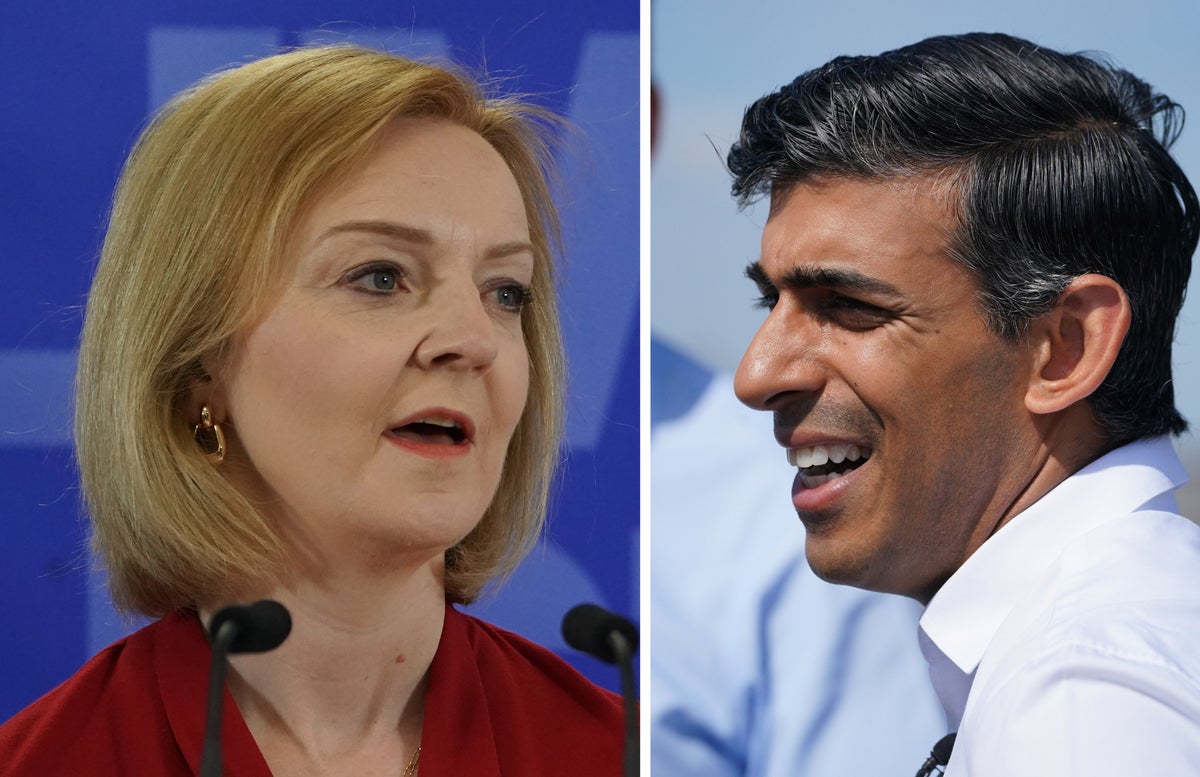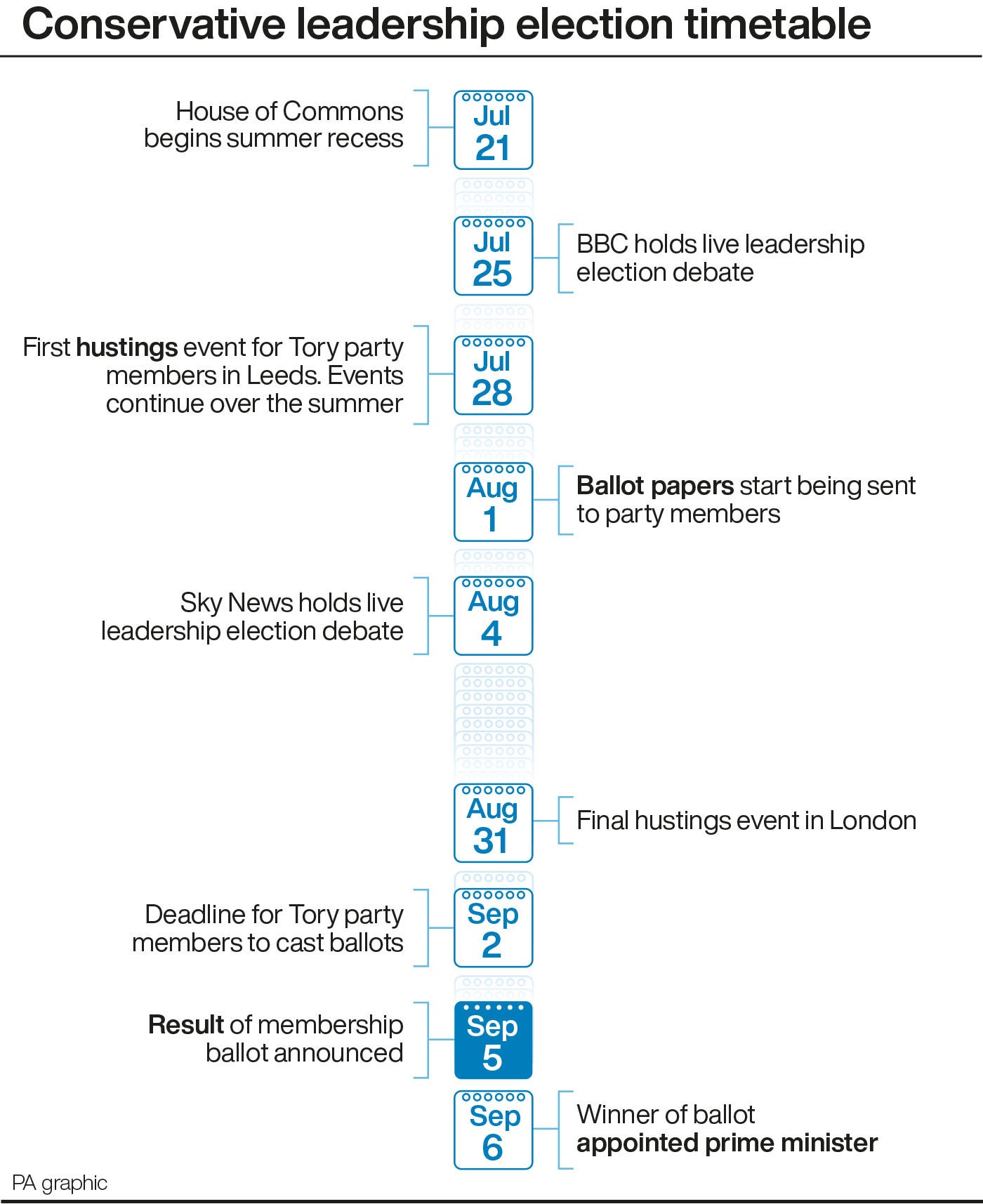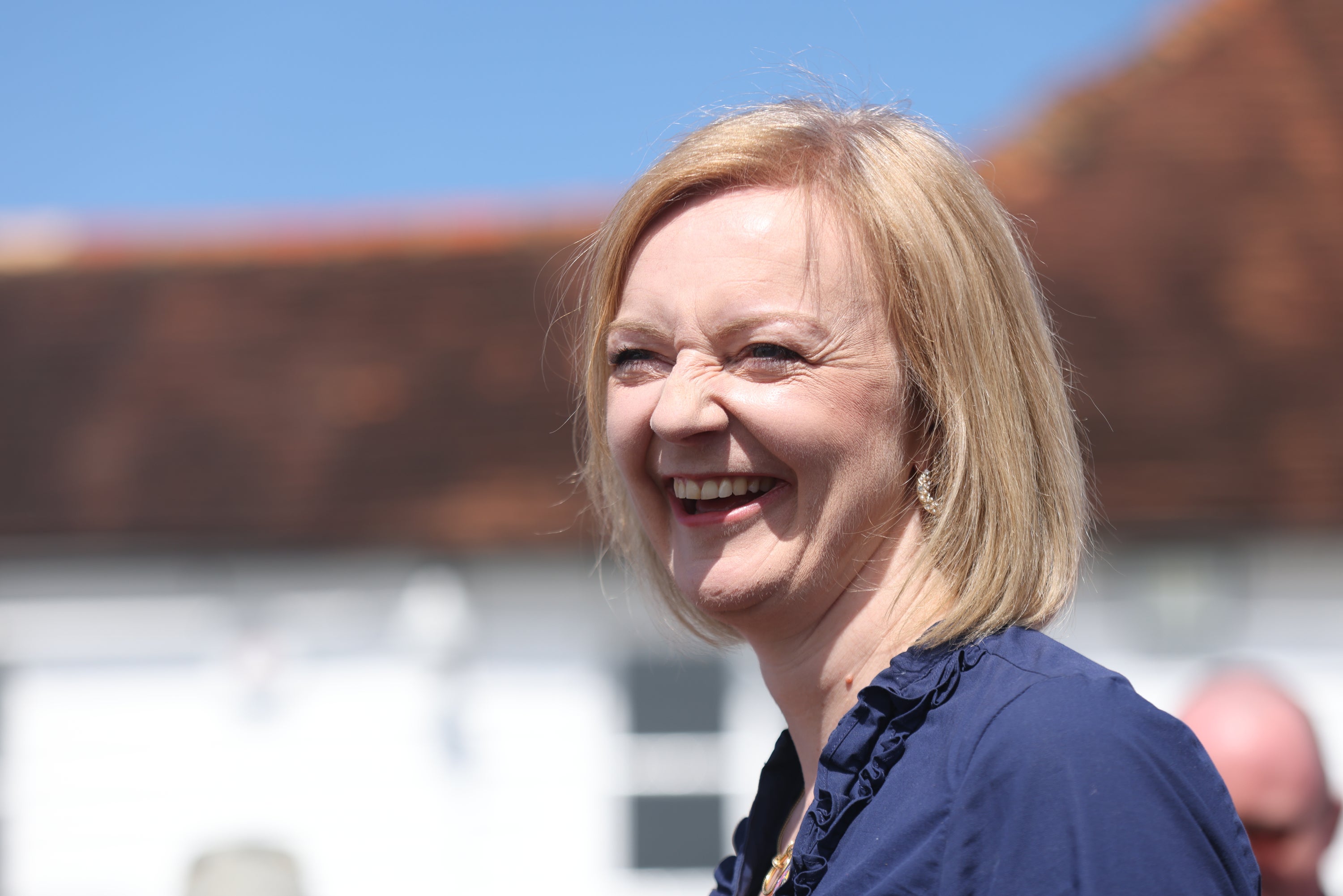
The UK will crack down further on illegal migration in the coming months regardless of who enters Downing Street, after both Liz Truss and Rishi Sunak pledged fresh measures to tighten British borders.
On a weekend in which the two rival camps traded blows over tax cuts and economic credibility, the Foreign Secretary and the former chancellor appeared united on the need to toughen up UK policy on migrants.
That unity was only temporary however, as the Truss campaign questioned the credibility of Mr Sunak’s proposals.
Ms Truss has promised an expanded Border Force, while Mr Sunak has committed to an annual cap on the number of refugees coming to Britain.
The leadership campaign has so far seen both candidates re-commit to the Government’s controversial Rwanda asylum scheme, over which Britain currently stands to lose the £120 million it has paid to Rwanda if the plan to deport migrants is ruled unlawful by the courts.
Both candidates defended the policy, despite officials from the east African nation’s government confirming this week it had received the entire initial payment for the agreement signed in April and that the funds are already “committed”, with some money spent on preparations for arrivals.
The first deportation flight was grounded in June after a series of legal challenges, and another attempt is yet to be scheduled.
Ms Truss told the Mail On Sunday that the Rwanda scheme is the “right” policy, and said it could be expanded to include other countries.
Expanding on comments made in an interview with the newspaper, the Truss campaign also said that as prime minister she would increase the UK’s frontline Border Force by 20% and double the Border Force Maritime staffing levels.
Mr Sunak made a similar pledge on Rwanda, with his campaign promising to do “whatever it takes” for the scheme to succeed.
Illegal migration has so far played a less significant role in the campaign, with inflation and the cost-of-living dominating the clashes between the candidates.
On the first weekend since Tory MPs whittled down the candidates to the final two, Mr Sunak travelled to Margaret Thatcher’s birthplace of Grantham in Lincolnshire where he stressed his “common sense” Thatcherite credentials and labelled the tax plans of Ms Truss “immoral”.
His concerns were backed by Tory grandees Chris Patten, Norman Lamont and Malcolm Rifkind, who told The Observer that Mrs Thatcher would not have approved of cutting taxes to curb inflation.
Therese Coffey, the Work and Pensions Secretary and Truss backer, rejected those concerns.
In a sign of the divisions within the party, she told Sky News: “Well, I don’t know the basis on which they’re saying that: many of them were not in the original Margaret Thatcher Cabinet at the start of when she took over in 1979.”
“I’m not going to exchange comments with people who haven’t been in government for a very long time.”
Ms Truss, during a visit to party members in Kent, once again defended her plans for potentially £30 billion of tax cuts, saying: “I think it is wrong to be taking money from people that we don’t need to take, when people across the country are struggling with the cost-of-living crisis.”
Ms Truss said her plan to tackle illegal migration would be given a strong legal foundation by the new UK Bill of Rights, adding: “We need to break the cycle of these appalling gangs and stop people taking dangerous journeys across the Channel.

“As prime minister, I am determined to see the Rwanda policy through to full implementation as well as exploring other countries where we can work on similar partnerships.
“I’ll make sure we have the right levels of force and protection at our borders. I will not cower to the ECHR (European Convention on Human Rights) and its continued efforts to try and control immigration policy.”
A source close to Ms Truss said she had been involved in developing the “generation-defining” Rwanda policy, and had been frustrated at ECHR “mission creep”.
On illegal immigration, Mr Sunak offers a 10-point plan that will include a commitment to a narrower definition of who qualifies for asylum compared to that from the ECHR, with enhanced powers to detain, tag and monitor illegal migrants.
Mr Sunak also promises to give Parliament control over who comes to the UK by creating an annual cap on the number of refugees accepted each year, albeit one that can be changed in the case of sudden emergencies.
He said: “Our immigration system is broken and we have to be honest about that. Whether you believe that migration should be high or low, we can all agree that it should be legal and controlled.”

Mr Sunak said if he wins the party vote, top of his agenda will be a meeting with French President Emmanuel Macron to find a solution to small boat crossings, which he also suggests should be tackled with a new cross-Government taskforce.
But the Truss camp has raised questions about Mr Sunak’s proposals, arguing that it was unclear how the refugee quota would work and suggesting that some of his plans amounted to a “rebrand”.
Both candidates’ plans have already faced criticism, with Oxfam labelling as “cruel” any plan to link UK aid payments to countries’ co-operation with immigration removals.
“If anything, this shows that the heat of campaigning leads to bad policy,” said Sam Nadel, Oxfam’s head of government relations.
“To meet a world in desperate crisis – facing climate change, famine and conflict – with cruel policies such as these would not live up to the role. We need more aid and safe and legal routes to the UK.”
Shadow home secretary Yvette Cooper also criticised the proposals, accusing the candidates of wasting taxpayers’ money on the Rwanda scheme.
She said: “The Conservatives have been in power for 12 years. It beggars belief that they claim to be the ones to sort things out when they have both failed for so long.”
On Sunday, Welsh Secretary and Sunak supporter Sir Robert Buckland rejected such concerns, calling the proposals “humane”.
He told Sky News: “I think it is a very common sense and pragmatic approach to a problem that has been around for longer than we care to remember,” Sir Robert said.
It comes as new polling by Opinium suggests voters are largely split between Ms Truss and Mr Sunak, with 43% believing the former chancellor would be a good PM compared to 36% for the Foreign Secretary.
Both candidates still have time to make an impression on the public, with the pair set to face-off in a televised BBC debate on Monday, followed by another debate on Tuesday hosted by The Sun and TalkTV.
Mr Sunak and Ms Truss have also signed up for a Sky debate on August 4.







